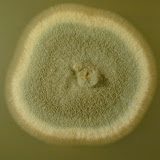NEW YORK (GenomeWeb News) – A particularly severe form of human infection is being linked to a subset of Escherichia coli O157:H7 strains, based on a new phylogenetic analysis of the bug. In the study, published online last night in the Proceedings of the National Academy of Sciences, researchers at Michigan State University and elsewhere used phylogenetics to organize several hundred clinically relevant E. coli O157 strains into nine clades. As it turned out, many of the strains isolated from people with the most serious E. coli O157-related disease clustered in just one of these clades: clade eight, which seems to be more prevalent in recent years.
First recognized in the early 1980s, EHEC outbreaks have been linked to a variety of food sources including undercooked ground beef, alfalfa, spinach, unpasteurized fruit juice, salami, wild game meat, and raw milk. The bacteria’s toxins can cause hemorrhagic colitis, which is characterized by abdominal pain, bloody diarrhea, and sometimes vomiting. Young children and the elderly are often hit hardest by the bug. In some cases, infected individuals develop hemolytic uremic syndrome, which can result in kidney failure, seizures, strokes, and other serious complications.
Wednesday, March 12, 2008
Subscribe to:
Post Comments (Atom)

No comments:
Post a Comment